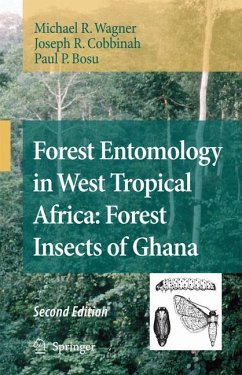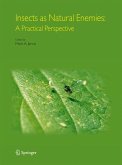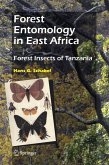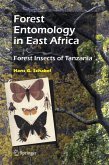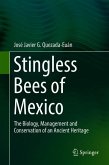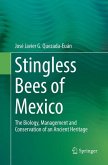It is indeed an honour for me to write the foreword to the second edition of Forest Entomology in West Tropical Africa: Forest Insects of Ghana. Originally co- thored by Professor Michael R. Wagner, Dr. S.K.N. Atuahene, and Dr. Joseph R. Cobbinah, the authorship now includes Dr. Paul P. Bosu, who replaces Dr. Atuahene of blessed memory (may his soul rest in perfect peace). In the preface to the first e- tion the authors stated their motivation for writing in these words: "We have written this book with the practicing forester and forest entomologist in mind." I am c- vinced beyond any doubt that the book has been, and continues to be, of immense benefit to the targeted audience. Over the course of the last 16 years, since the publication of the maiden edition in 1991, there have been tremendous changes in the science and practice of forest entomology in West Africa. Research has improved significantly and the volume of literature on the subject has also increased severalfold. Thebiology, ecology, and management of major insects for which very little was known nearly two decades ago have now been studied. At the same time, collaboration among forest entom- ogists and other scientists of West Africa improved significantly and greatly enhanced the science and practice of forest entomology in the subregion. The healthy development would greatly facilitate management of pest outbreaks, which invariably are not limited by national boundaries.

